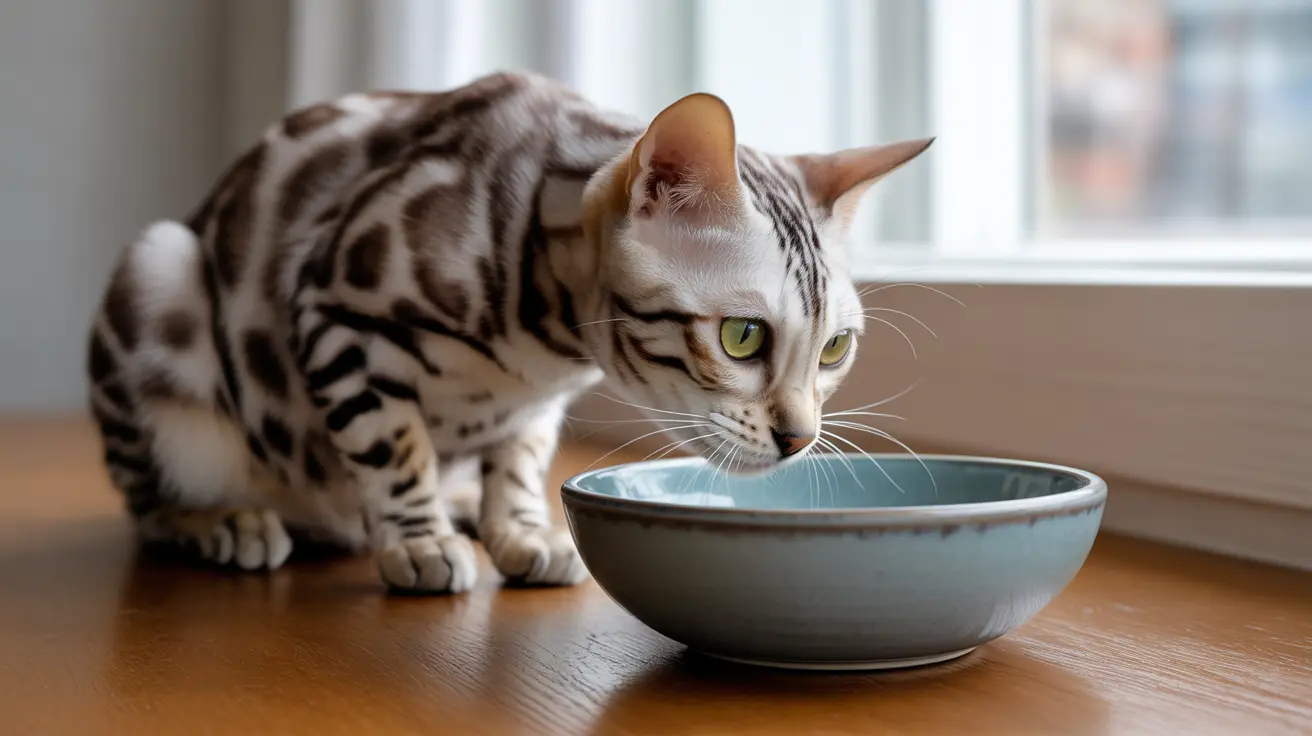The Important Role of Cat Whiskers
Cat whiskers, technically called vibrissae, are specialized sensory organs that serve crucial functions in your cat's daily life. These remarkable tools help cats navigate their environment, judge distances, and maintain balance. Unlike regular fur, whiskers are deeply rooted and contain highly sensitive nerve endings that provide vital sensory information.
Normal Whisker Shedding vs. Problematic Loss
Cats naturally shed their whiskers as part of their regular growth cycle. Typically, cats lose one or two whiskers at a time, and new ones grow back in their place. This natural process shouldn't cause any noticeable gaps in your cat's whisker arrangement.
However, if you notice multiple whiskers falling out simultaneously or observe bare patches where whiskers should be, this could indicate an underlying issue that requires attention.
Common Causes of Excessive Whisker Loss
Medical Conditions
Several health issues can lead to abnormal whisker loss, including:
- Bacterial or fungal infections
- Skin conditions and allergies
- Hormonal imbalances
- Autoimmune disorders
Environmental Factors
Your cat's environment can significantly impact whisker health:
- Stress from changes in routine or environment
- Physical trauma from accidents or fights
- Exposure to irritants or allergens
- Whisker fatigue from inappropriate feeding bowls
Prevention and Treatment
To help maintain healthy whiskers, consider these steps:
- Provide proper nutrition through a balanced diet
- Use shallow, whisker-friendly food and water bowls
- Maintain a stress-free environment
- Regular veterinary check-ups
- Prompt treatment of any skin conditions or infections
When to Consult a Veterinarian
Seek veterinary attention if you notice:
- Sudden or excessive whisker loss
- Accompanying symptoms like skin irritation or changes in behavior
- Signs of infection or injury around the whisker area
- Other health concerns alongside whisker loss
Frequently Asked Questions
Why is my cat losing whiskers and when should I be concerned?
While occasional whisker loss is normal, losing multiple whiskers simultaneously or noticing bare patches should prompt concern. Contact your veterinarian if whisker loss is accompanied by other symptoms like skin irritation or behavioral changes.
Can allergies or infections cause a cat to lose its whiskers?
Yes, both allergies and infections can cause whisker loss. Allergic reactions can lead to inflammation and irritation, while infections may affect the hair follicles, causing whiskers to fall out.
How long does it take for cat whiskers to grow back after falling out?
Generally, cat whiskers take 2-3 months to grow back completely. However, this timeline can vary depending on the cause of the loss and the cat's overall health status.
What is whisker fatigue in cats and how can I prevent it?
Whisker fatigue occurs when a cat's sensitive whiskers are repeatedly stressed by contact with food bowl sides. Use wide, shallow bowls to prevent this condition and ensure comfortable feeding.
Are there health issues or stress factors that lead to excessive whisker loss in cats?
Yes, various health issues including skin conditions, infections, and hormonal imbalances can cause whisker loss. Stress factors like environmental changes, new pets, or moving can also contribute to excessive whisker shedding.
Conclusion
While some whisker loss is natural, paying attention to your cat's whiskers can help you spot potential health issues early. By understanding the causes and signs of problematic whisker loss, you can better maintain your cat's health and know when to seek professional help.






